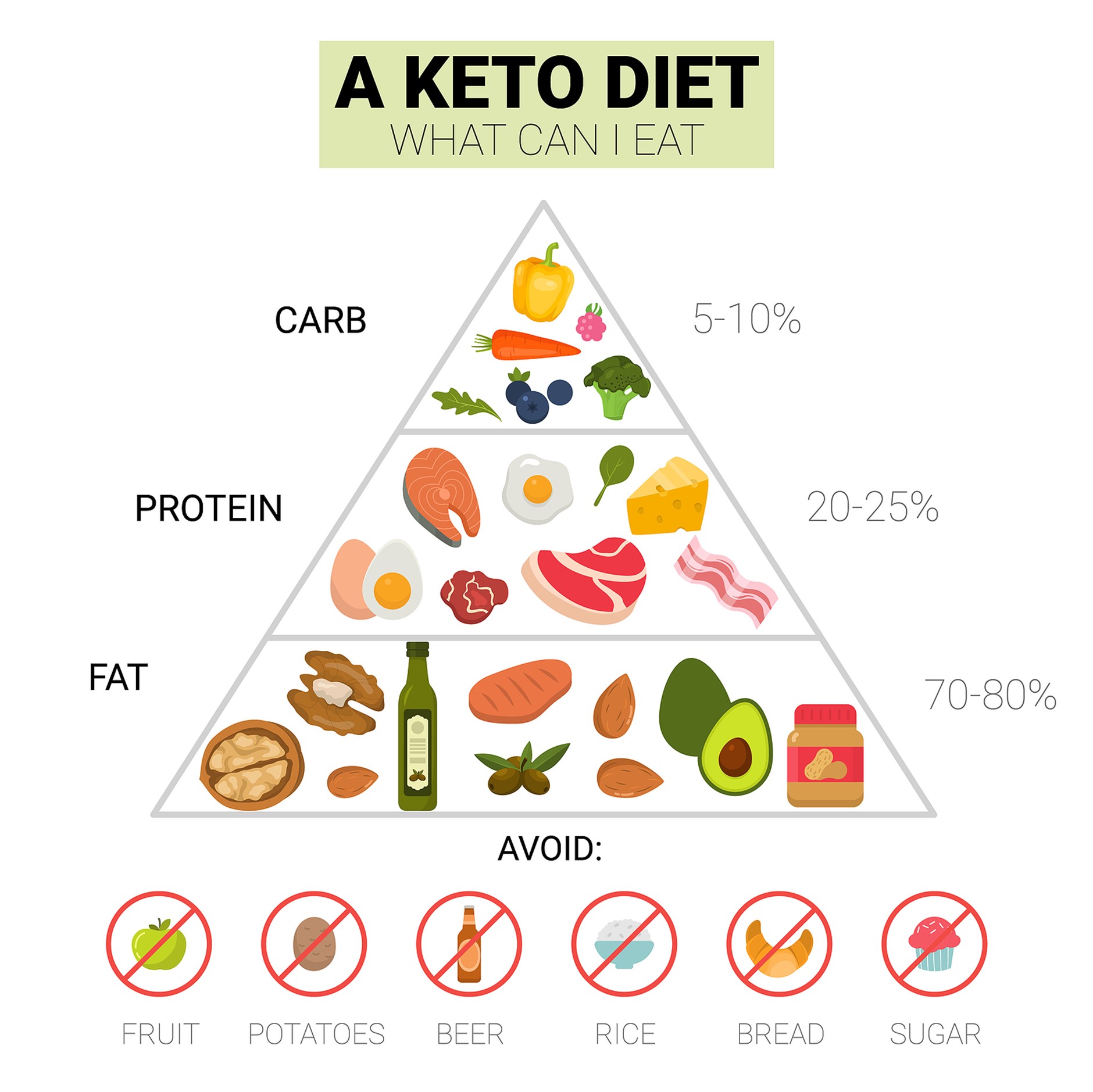Pulse of Information
Your source for the latest insights and updates.
Keto or Not: The Great Debate on Carbs vs. Fats
Discover the ultimate showdown between carbs and fats! Dive into the Keto debate and uncover the truth for your diet goals!
Keto 101: Understanding the Science Behind Low-Carb Diets
The Keto diet, short for ketogenic diet, is a low-carbohydrate, high-fat dietary approach that has garnered significant attention for its potential benefits in weight management and metabolic health. The fundamental principle behind the ketogenic diet is to shift the body’s primary energy source from carbohydrates to fats. When carbohydrate intake is drastically reduced, the body enters a state called ketosis, where it begins to convert fat into ketones, providing an alternative fuel source for the brain and body. This metabolic shift can lead to decreased hunger, increased fat burning, and improved blood sugar levels.
Understanding the science behind low-carb diets like keto involves recognizing the role of macronutrients. In a typical ketogenic diet, approximately 70-80% of daily caloric intake comes from fats, while carbohydrates are limited to about 5-10%. This unique macronutrient composition triggers a range of physiological changes, including enhanced insulin sensitivity, which can be particularly beneficial for individuals with insulin resistance or type 2 diabetes. Moreover, research suggests that low-carb diets may promote fat loss and improve markers of heart health, making it essential to consider both the benefits and potential drawbacks before embarking on this dietary journey.

Fats vs. Carbs: Which Macronutrient Reigns Supreme for Weight Loss?
The debate over fats vs. carbs as the superior macronutrient for weight loss has been ongoing for years, with proponents on both sides claiming their dietary preference as the key to shedding pounds. Fats, often vilified in past dietary trends, have been shown to promote satiety, ultimately reducing overall calorie intake. On the other hand, carbohydrates, particularly when derived from whole food sources, provide essential energy for workouts and daily activities. The choice between these macronutrients can thus be tailored to individual lifestyles, as it is not just about one being better than the other, but finding a balance that works for each person.
Research suggests that both fats and carbs can be effective for weight loss when consumed in appropriate amounts and combined with a solid exercise regimen. Some studies show that low-carb diets can lead to rapid weight loss due to reduced insulin levels and increased fat burning. However, dietary fats can also play a crucial role by keeping hunger at bay and providing essential fatty acids that are vital for overall health. Ultimately, the choice of macronutrient should depend on personal preferences, lifestyle, and specific weight loss goals rather than a strict allegiance to one category over another.
The Great Debate: Can You Really Thrive on a High-Fat Diet?
The debate surrounding high-fat diets has gained significant traction in recent years, leading many to question whether it is truly possible to thrive on a high-fat diet. Proponents argue that such diets, often characterized by low carbohydrates and high healthy fats, can promote weight loss, enhance mental clarity, and improve overall metabolic health. Observational studies and anecdotal evidence highlight impressive results, particularly among those following ketogenic or other low-carb, high-fat dietary patterns. However, critics raise concerns regarding potential long-term health risks and argue that a balanced approach, rich in whole foods, is key to sustainable health.
Before diving headfirst into a high-fat lifestyle, it’s essential to consider the quality of fats consumed. Healthy fats, such as those from avocados, nuts, and olive oil, may contribute positively to heart health and provide essential fatty acids. On the flip side, diets high in saturated fats or trans fats can lead to adverse health effects. The question of whether you can truly thrive on this dietary approach often hinges on personal goals, lifestyle, and individual metabolic responses. Ultimately, engaging in this great debate requires a nuanced understanding of nutrition and a willingness to adapt based on personal health outcomes.